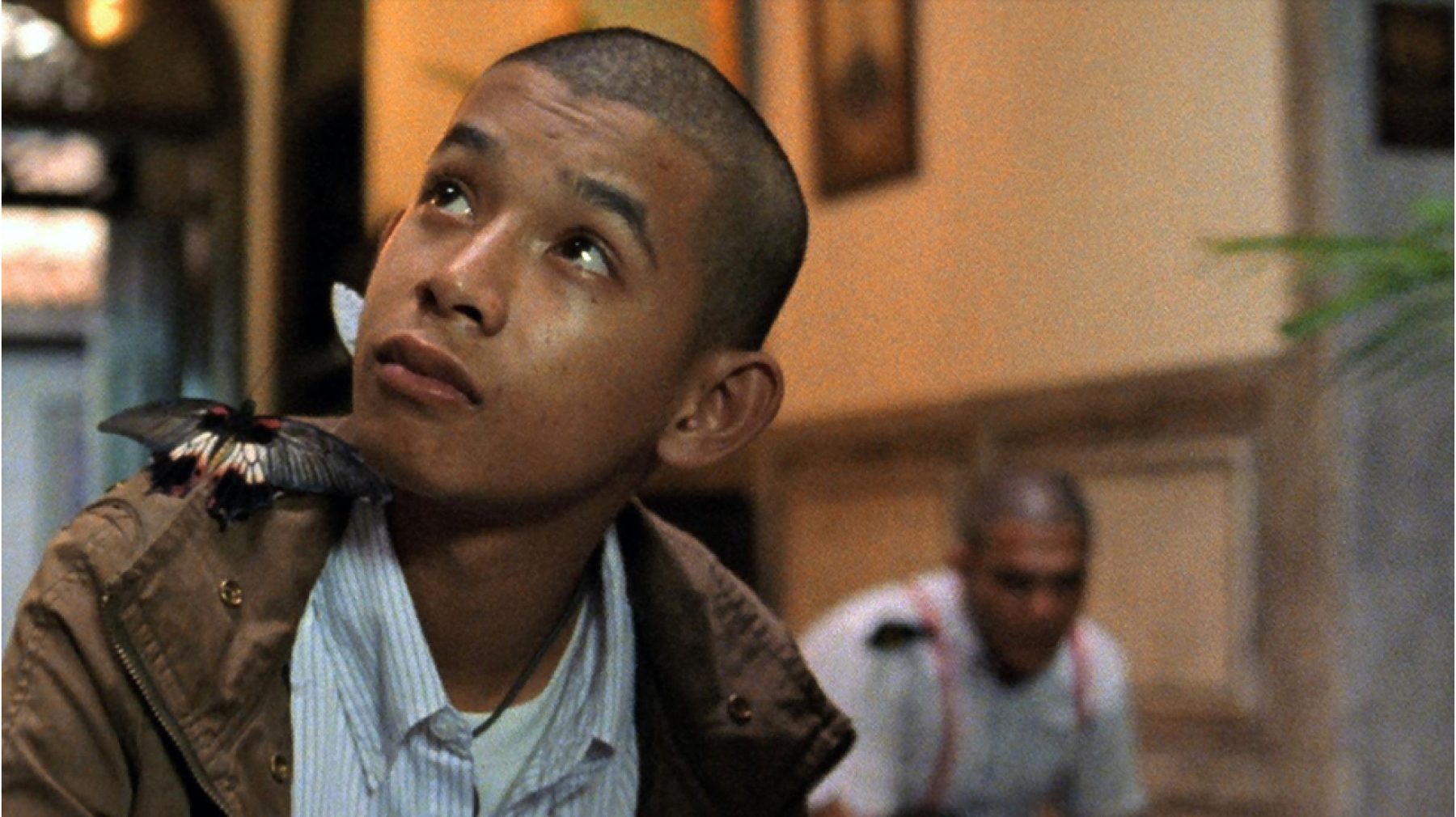Phil Collins: Tomorrow Is Always Too Long
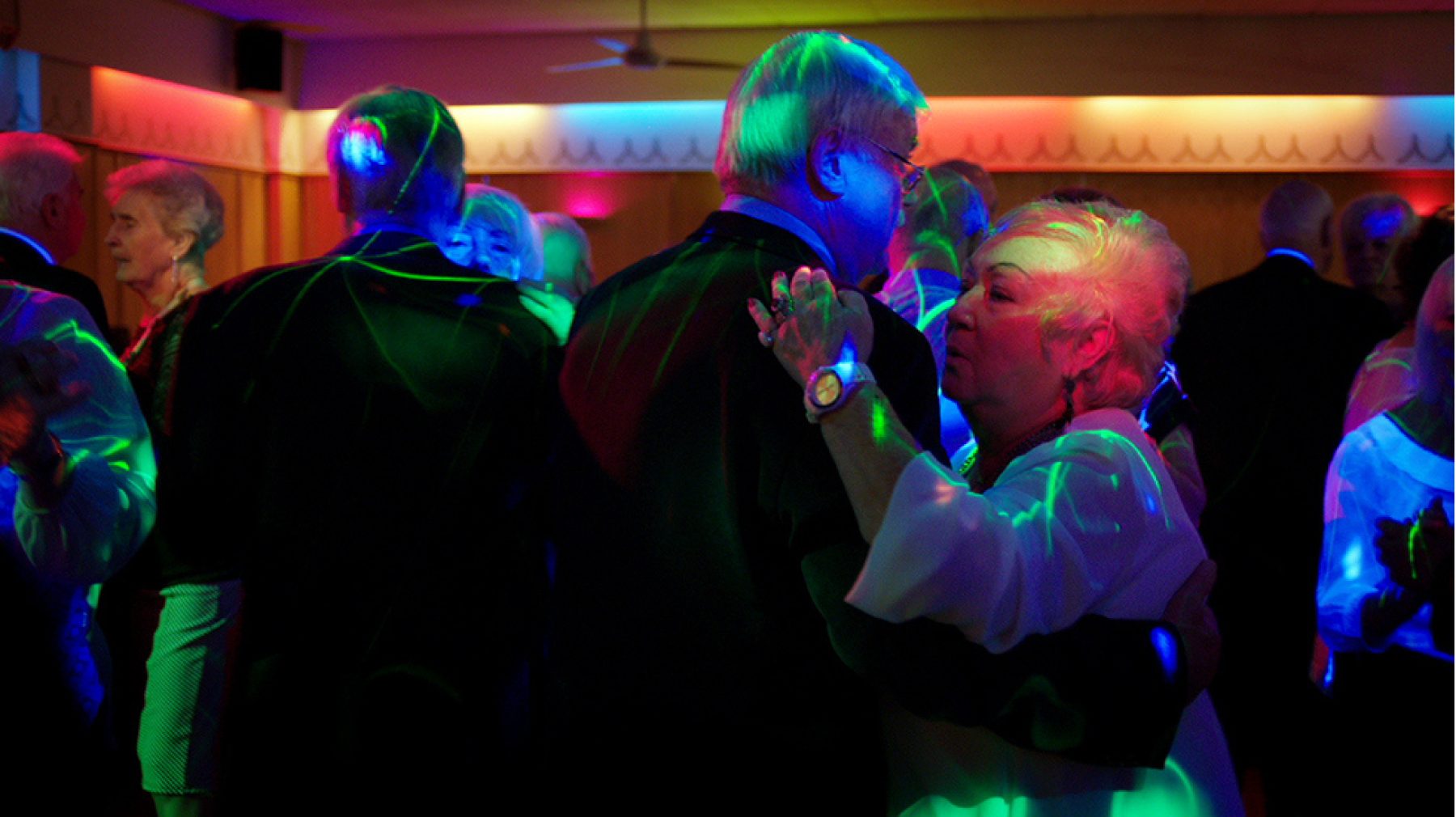
Phil Collins, Tomorrow Is Always Too Long, 2014. HD digital video, Hi8 and VHS; color, sound; 82 min. Courtesy Shady Lane Productions, Berlin and Tanya Bonakdar Gallery, New York.
The feature-length film Tomorrow Is Always Too Long by Phil Collins has been described as a “modern day city symphony” and “love letter” to Glasgow. A paean to Scotland’s largest urban center, the film effortlessly interweaves a range of voices from institutions and communities that define the complex character of the city. Collins combines original and archival footage into an imaginary media landscape. In between Paul Robeson’s May Day visit to Glasgow in 1960 and adult silhouette animations by Matthew Robins, impromptu broadcasts shot in a disused TV studio and bursts of electronic soundtrack by Mogwai’s Barry Burns, a cast of non-professional Glaswegians perform songs by Cate Le Bon with an accompaniment by the Royal Scottish National Orchestra. The film’s diverse but unified character mirrors the city’s inhabitants, who unexpectedly burst into song amid a sensory overload of public-access-style channel surfing. This rich and thoroughly collaborative effort brings together a cross-section of voices–from schools, hospitals, public parks, nightclubs, and a prison–into a single filmic space. Moving gracefully among the genres of musical, documentary, and animation, Collins majestically captures how ordinary aspects of everyday life can take on extraordinary and poignant proportions.
Introduced by James Voorhies, the John R. and Barbara Robinson Family Director of the Carpenter Center.
Mark your calendars: April 7! Phil Collins in person at the Carpenter Center to screen his feature-length film Tomorrow Is Always Too Long (82 min.) followed by a talk with the artist.
Phil Collins
Phil Collins is a British-born filmmaker, visual artist, cultural organizer, and educator based in Berlin and Wuppertal. His diverse practice is characterized by close engagements with place and communities, which over the years have included, amongst others, disco-dancing Palestinians, fans of The Smiths across three continents, Kosovan-Albanian refugees, the youth of Baghdad, anti-fascist skinheads in Malaysia, the homeless population of Cologne, and teachers of Marxism-Leninism from the former German Democratic Republic. Rather than static portraits, the works resulting from these collaborations articulate the nuances of relations embedded in the aesthetic regimes and economies that define everyday existence, from news and politics to entertainment and shopping. Throughout, Collins upholds a commitment to myriad forms of experience across the social spectrum, and an interest in the contradictory impulses of intimacy and desire within the public sphere.
Collins’s works are represented in collections such as those of Museum of Modern Art and Metropolitan Museum of Art in New York; Tate Gallery, London; and Museum of Fine Arts, Boston. In Spring 2016 his first feature film Tomorrow Is Always Too Long (2014) will be theatrically released in Germany.
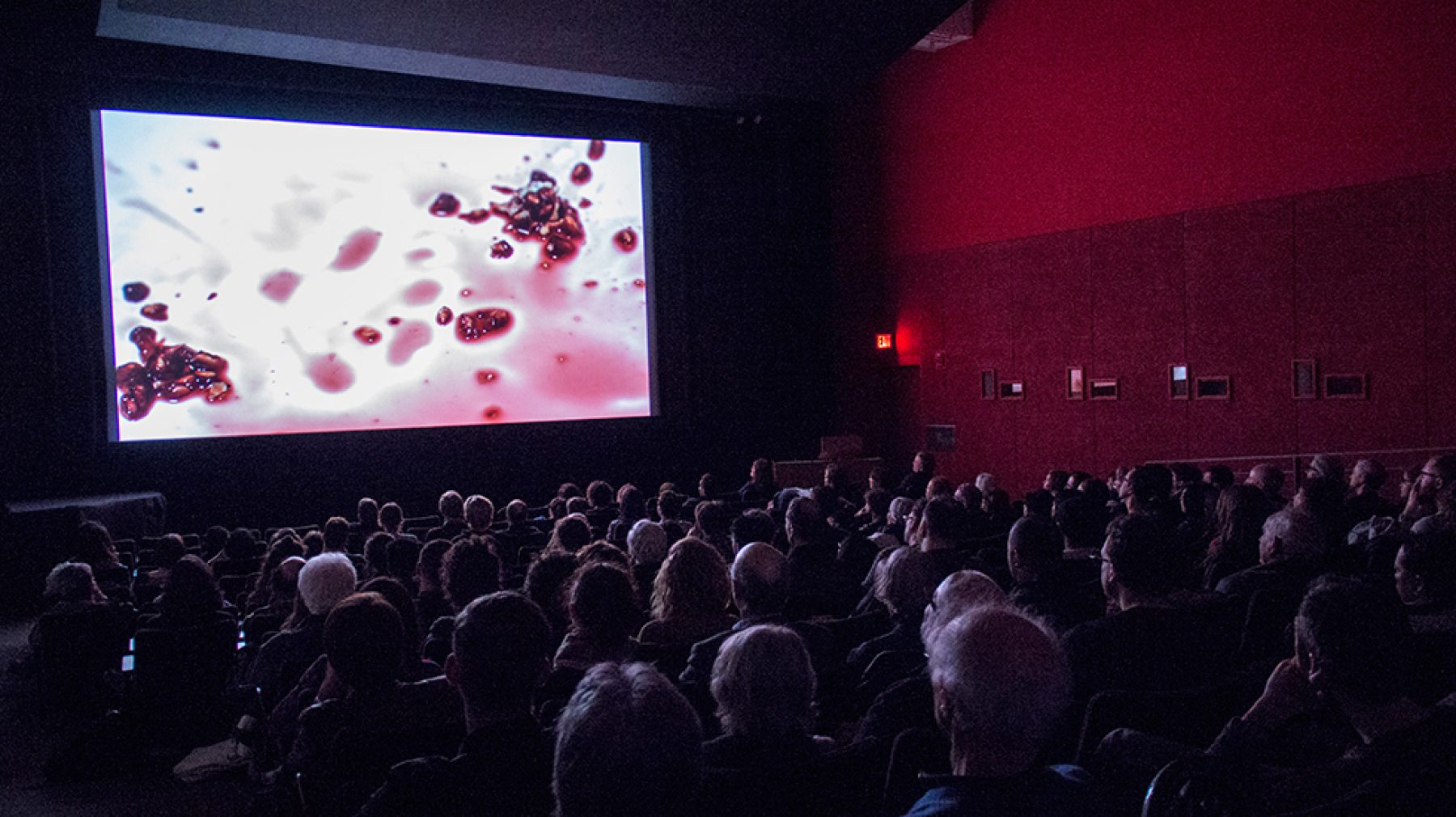
Artist Talk + Screening, Phil Collins, Tomorrow Is Always Too Long, 2014. Carpenter Center for the Visual Arts, Lecture Hall, Apr 7, 2016.
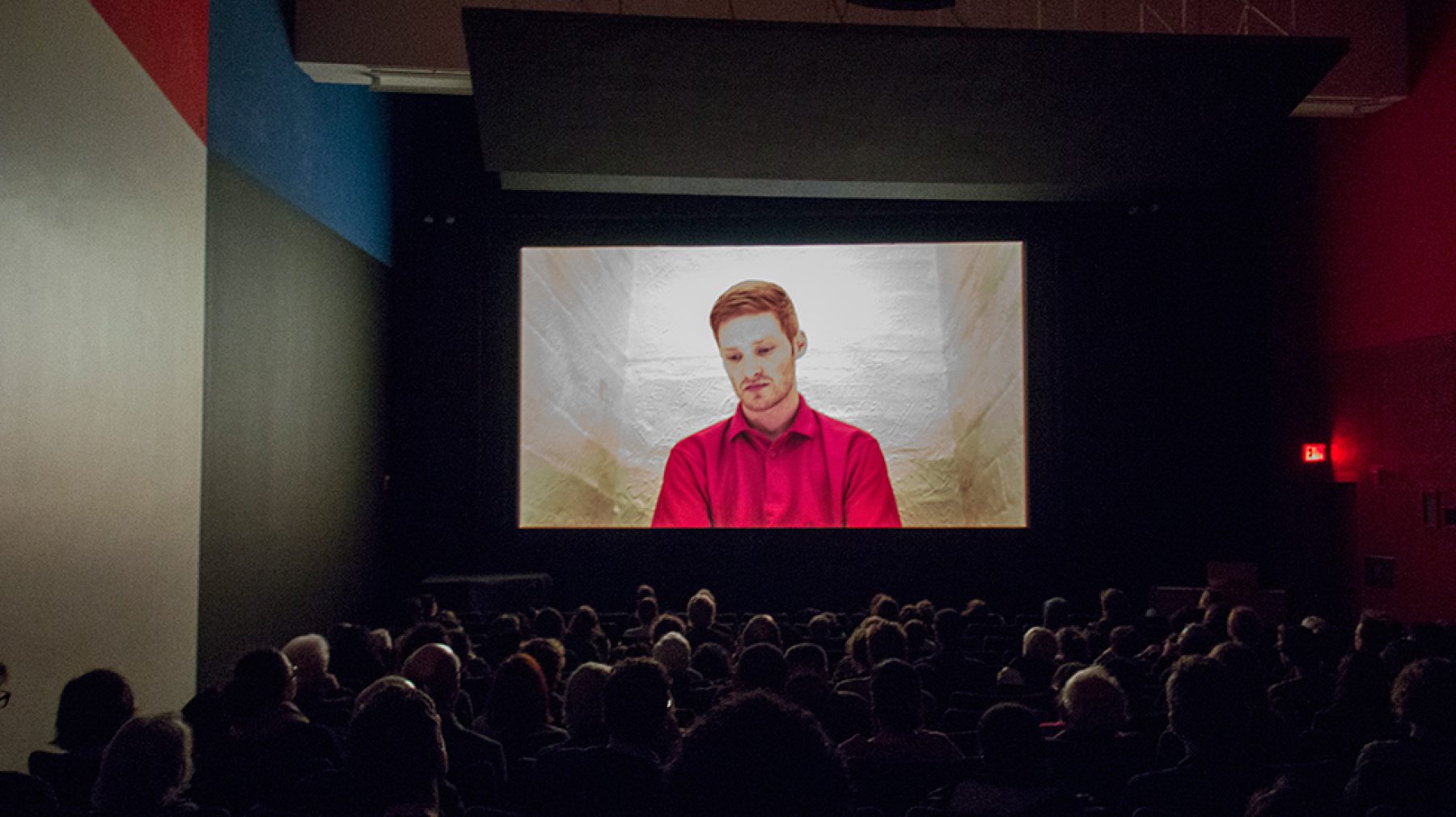
Artist Talk + Screening, Phil Collins, Tomorrow Is Always Too Long, 2014. Carpenter Center for the Visual Arts, Lecture Hall, Apr 7, 2016.
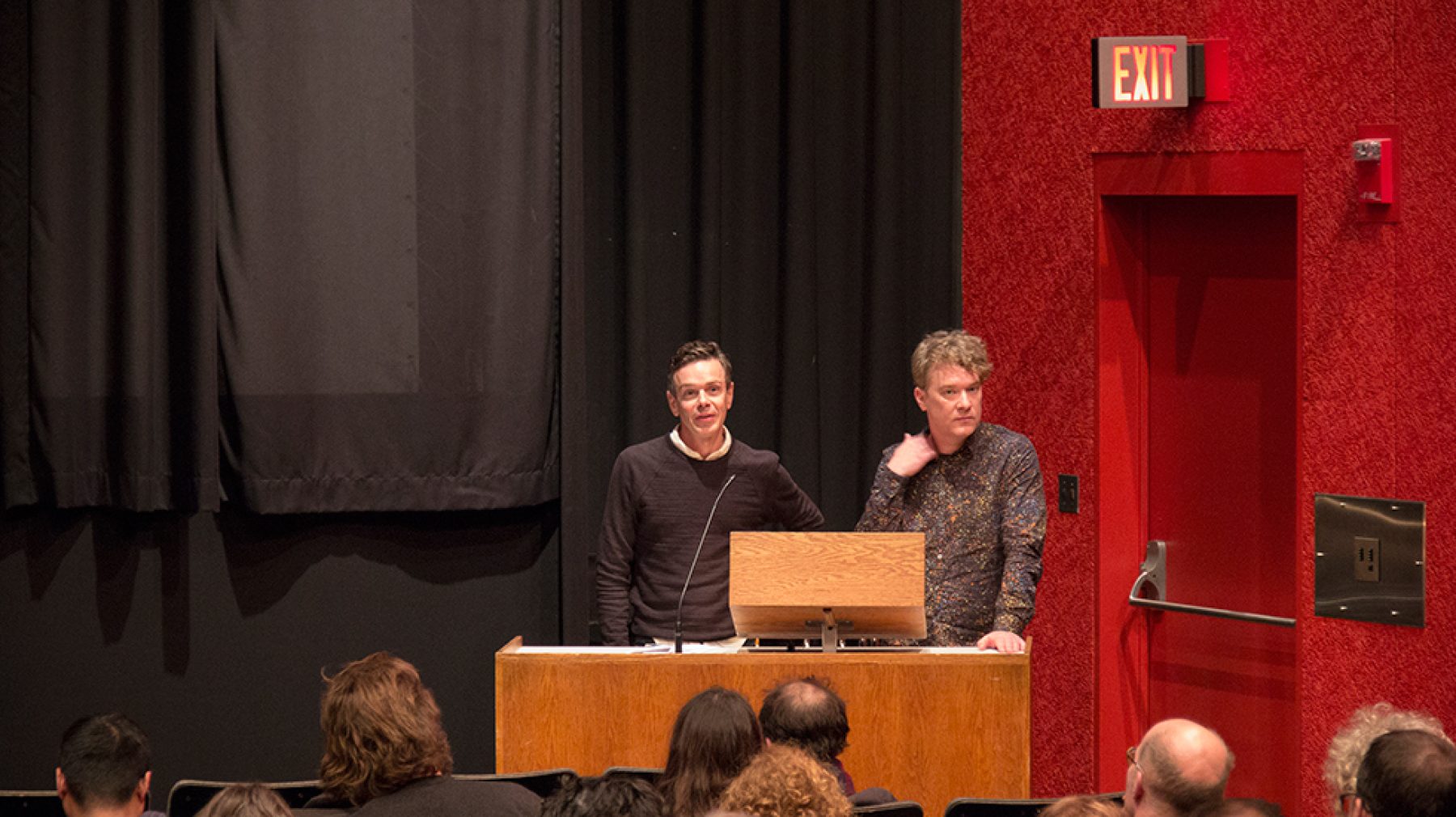
Artist Talk + Screening, Phil Collins, Tomorrow Is Always Too Long, 2014. Carpenter Center for the Visual Arts, Lecture Hall, Apr 7, 2016.
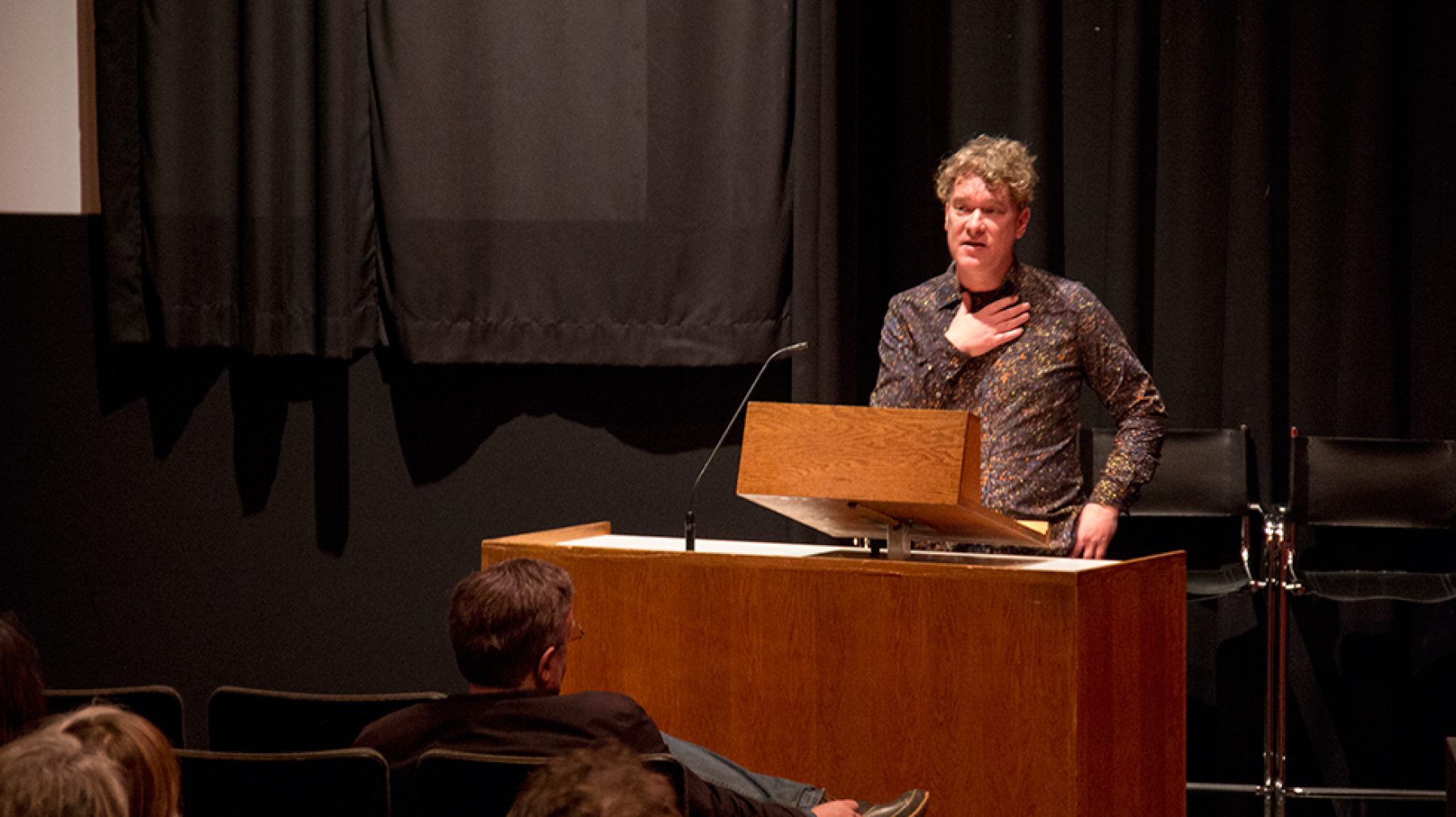
Artist Talk + Screening, Phil Collins, Tomorrow Is Always Too Long, 2014. Carpenter Center for the Visual Arts, Lecture Hall, Apr 7, 2016.
Archive
Explore more of our rich history through our archive.
